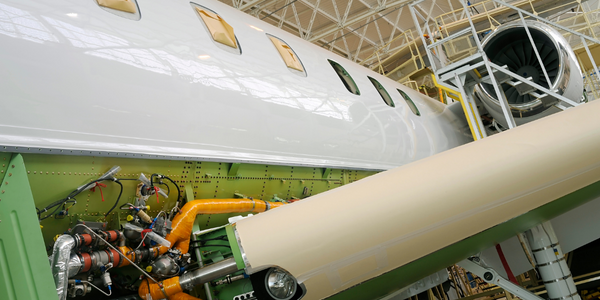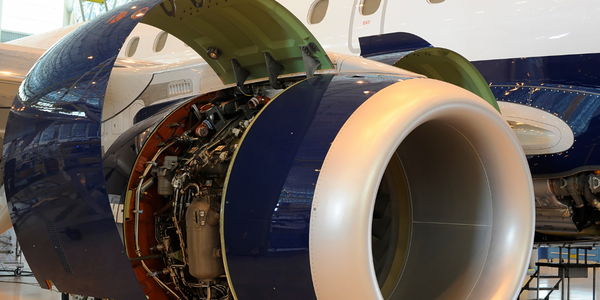Technology Category
- Networks & Connectivity - 5G
- Platform as a Service (PaaS) - Application Development Platforms
Applicable Industries
- Aerospace
Applicable Functions
- Sales & Marketing
Use Cases
- Chatbots
- Leasing Finance Automation
About The Customer
Airport AI is a leading automated customer service (ACX) platform for the airport industry. It enables airports to automate customer-facing processes with a combination of Conversational AI and process automation. The platform is used by more than 40 airports across the world, including global hubs such as Frankfurt Airport, Gatwick Airport, and Sydney Airport. It is designed to transform customer support from a cost center to a profit center for airports of all sizes by offering customer support, boosting non-aeronautical revenues, and providing insights about travelers.
The Challenge
Airport AI, a leading AI-powered customer service platform used by over 40 airports globally, was seeking to enhance its customer engagement and support. The company aimed to integrate a communication channel that could simplify customer engagement, answer frequently asked questions efficiently, and expand its reach among passengers worldwide. The desired channel needed to offer ease of use for passengers seeking flight status updates, offers from airport restaurants and shops, directions, and other airport-related information. It also needed to provide real-time communication for faster service updates, two-way communication for interactive and automated passenger engagement, and a reliable and familiar channel with a broad reach and growing global adoption. Lastly, the channel needed to facilitate fast, frictionless connections between passengers and AI bots.
The Solution
Airport AI chose to integrate the WhatsApp Business platform, the most popular global messaging channel with over 2 billion monthly active users in over 100 countries, into its customer service platform. This integration established simple and clear communication flows to enhance the passenger experience through automated chatbots. By integrating WhatsApp Business as a communication channel into their platform, Airport AI enabled airports like Gatwick, Dublin, Zurich, Geneva, Altanfeethi, Riyadh, Lisbon, Cork, and Barcelona to onboard and educate passengers by providing access to online and downloadable content. It also increased product sales by offering passengers personalized offers via quick buttons or options provided by the chatbot. Furthermore, it enhanced customer support by allowing passengers to make queries, provide feedback, and receive real-time, one-on-one support across their flight journey.
Operational Impact
Quantitative Benefit

Case Study missing?
Start adding your own!
Register with your work email and create a new case study profile for your business.
Related Case Studies.

Case Study
Airbus Soars with Wearable Technology
Building an Airbus aircraft involves complex manufacturing processes consisting of thousands of moving parts. Speed and accuracy are critical to business and competitive advantage. Improvements in both would have high impact on Airbus’ bottom line. Airbus wanted to help operators reduce the complexity of assembling cabin seats and decrease the time required to complete this task.

Case Study
Aircraft Predictive Maintenance and Workflow Optimization
First, aircraft manufacturer have trouble monitoring the health of aircraft systems with health prognostics and deliver predictive maintenance insights. Second, aircraft manufacturer wants a solution that can provide an in-context advisory and align job assignments to match technician experience and expertise.

Case Study
Aerospace & Defense Case Study Airbus
For the development of its new wide-body aircraft, Airbus needed to ensure quality and consistency across all internal and external stakeholders. Airbus had many challenges including a very aggressive development schedule and the need to ramp up production quickly to satisfy their delivery commitments. The lack of communication extended design time and introduced errors that drove up costs.

Case Study
Accelerate Production for Spirit AeroSystems
The manufacture and assembly of massive fuselage assemblies and other large structures generates a river of data. In fact, the bill of materials for a single fuselage alone can be millions of rows of data. In-house production processes and testing, as well as other manufacturers and customers created data flows that overwhelmed previous processes and information systems. Spirit’s customer base had grown substantially since their 2005 divestiture from Boeing, resulting in a $41 billion backlog of orders to fill. To address this backlog, meet increased customer demands and minimize additional capital investment, the company needed a way to improve throughput in the existing operational footprint. Spirit had a requirement from customers to increase fuselage production by 30%. To accomplish this goal, Spirit needed real-time information on its value chain and workflow. However, the two terabytes of data being pulled from their SAP ECC was unmanageable and overloaded their business warehouse. It had become time-consuming and difficult to pull aggregate data, disaggregate it for the needed information and then reassemble to create a report. During the 6-8 hours it took to build a report, another work shift (they run three per day) would have already taken place, thus the report content was out-of-date before it was ever delivered. As a result, supervisors often had to rely on manual efforts to provide charts, reports and analysis.

Case Study
Developing Smart Tools for the Airbus Factory
Manufacturing and assembly of aircraft, which involves tens of thousands of steps that must be followed by the operators, and a single mistake in the process could cost hundreds of thousands of dollars to fix, makes the room for error very small.








